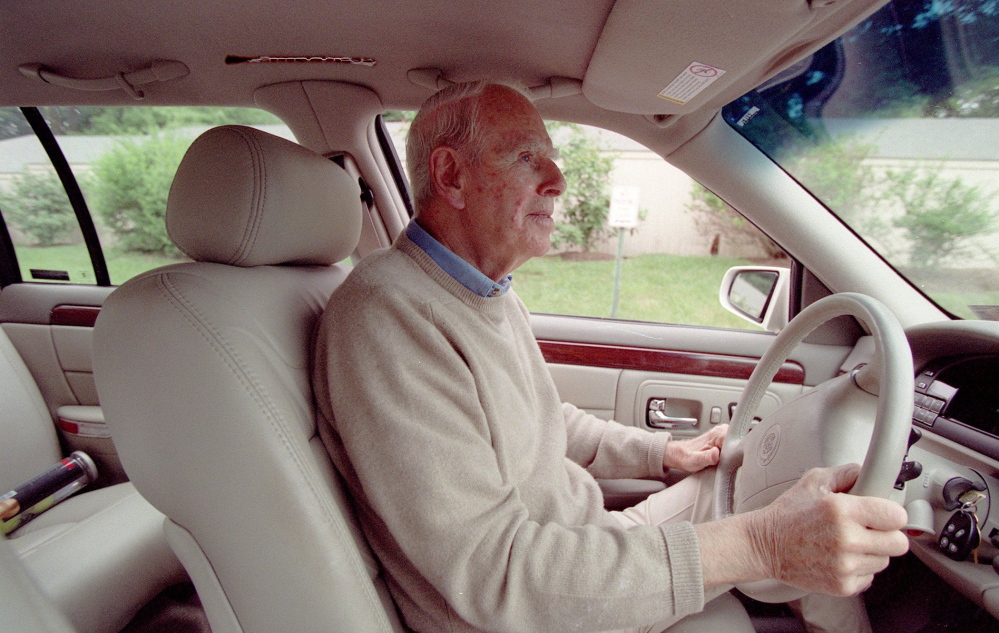When it comes to safe drivers, there’s the young, the very old and everyone in between.
Statistics show that drivers start off as relatively dangerous, mostly because of speed and inexperience. After a few years, the accident rate drops, and it stays more or less flat until the driver reaches retirement age, after which it starts to rise again, to mirror and then exceed that of teenage drivers. In fact, drivers age 70 and older are involved in more crashes per mile driven than any age group.
That’s a concern in Maine, which is second only to Florida in percentage of residents older than 65. Baby boomers make up 29 percent of Maine residents — the highest proportion in the country — and they are turning 65 at a rate of 18,250 per year.
Reducing the number of accidents is not as simple as ratcheting up the restrictions on all senior drivers. Drivers in general may become more likely to cause an accident as they age, but that doesn’t mean every elderly driver is a risk. In fact, most are not, and blanket restrictions are ineffective at lowering rates. At a time when people are working later in life and staying healthy longer, it makes little sense to force every senior driver to take a road test when they renew their license.
Instead, the trick is identifying the small percentage of drivers who are more likely to run into problems on the road. It is those drivers who need increased scrutiny.
The Maine Senior Driver Coalition, comprising state agencies and senior-interest groups, suggests seniors and their families use self-evaluation tools, such as the Roadwise Review by AAA, to see if their skills are on the wane, then rely on the drivers to restrict their driving, or stop altogether, on their own.
“The vast majority of senior drivers, when they develop problems, make good decisions,” said Daniel Onion, an Augusta-based physician who serves on the Maine Senior Driver Coalition. “Most — 95 percent, I’d say — can identify themselves, or their family can.”
The next step is ensuring that seniors exhibiting signs of decline are properly tested by the Bureau of Motor Vehicles. Mainers older than 65 must renew their licenses every four years — rather than the regular six — and must take a vision test when they do.
It is important that seniors are screened properly during those renewals. If they are taking medication for the beginning stages of dementia, Onion offers as an example, then perhaps a road test is necessary. Asking the right questions, and providing the right response to answers, is critical in identifying drivers whose ability is starting to fail.
In between renewals, physicians, family members and others shouldn’t hesitate to contact the BMV with concerns about an elderly driver, if overtures to that driver have failed to get through.
Also, the state needs a strong senior transportation network. Seniors will be more likely to give up their licenses when necessary if they have a reliable alternative to driving.
As Maine’s population ages, it will be a challenge to keep roads as safe as possible. But most seniors should not have to sacrifice mobility to make that happen.
Send questions/comments to the editors.



Success. Please wait for the page to reload. If the page does not reload within 5 seconds, please refresh the page.
Enter your email and password to access comments.
Hi, to comment on stories you must . This profile is in addition to your subscription and website login.
Already have a commenting profile? .
Invalid username/password.
Please check your email to confirm and complete your registration.
Only subscribers are eligible to post comments. Please subscribe or login first for digital access. Here’s why.
Use the form below to reset your password. When you've submitted your account email, we will send an email with a reset code.